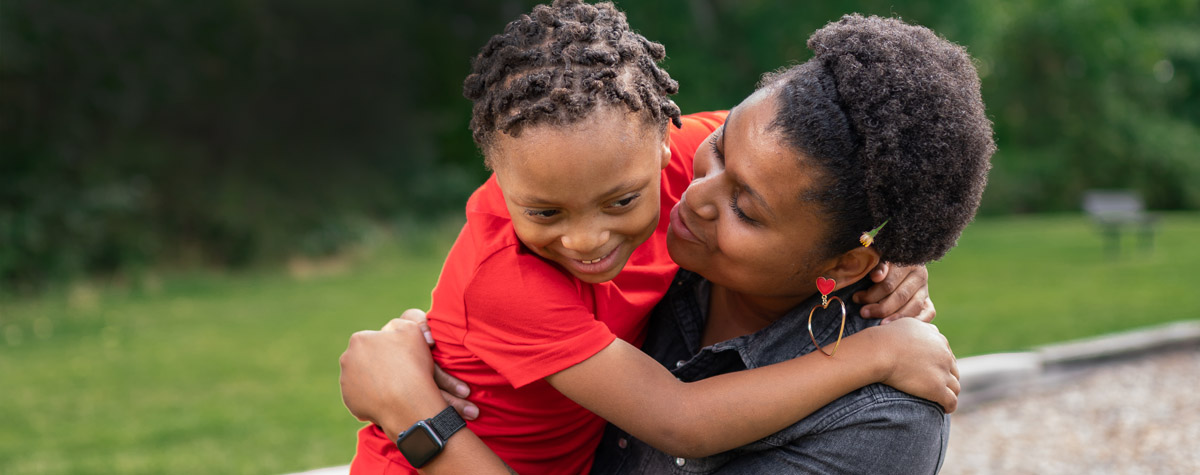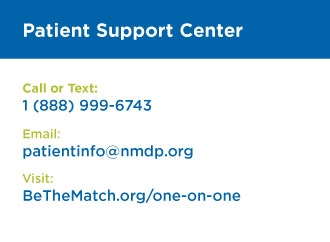November is National Family Caregivers Month and we want to say thank you to all of the caregivers who have supported their loved ones throughout treatment.
Who is a caregiver and what do they do?
A caregiver provides support to a loved one and cares for them throughout the transplant process. A caregiver can be a spouse or partner, adult children, a brother or sister, parents, close friends or co-workers. Here’s a few examples of what caregivers do:
- Stay with their loved one in the hospital or clinic to ask the doctor questions and keep track of treatment information
- Help with household tasks, like paying bills, grocery shopping and childcare
- Listen and provide emotional support
In this video, hear from patients and caregivers in their own words what it’s like to be a caregiver:
Support just for you
Being a caregiver can be rewarding, but it can also be overwhelming. We see the love and dedication you give to your loved one, and the toll it can take on you. Here are some simple tips and free resources that may help.
Quick tips to take care of you
- Take 5-10 minutes every day to be quiet, breathe, meditate or pray. Sit or lie down. Stretch. Gaze out the window. Listen to the sounds of nature.
- When you’re driving and at a stoplight, take your hands off the wheel for a moment and put them in your lap. Take 1 deep breath in and out.
- Then put your hands back on the wheel.
- Change your environment. Get up and walk down the hall or go outside
- Escape into a chapter of a good book or magazine, even if just for 15 minutes.
- Turn up your favorite song and sing loudly in the car.
Find more tips in the Caregivers Companion book. Order or download.
Support resources: connect with someone who understands
- Talk to a peer. We’ll put you in touch with someone who’s been a caregiver. Our trained peer volunteers are available to talk by phone or email. BeTheMatch.org/PeerConnect
- Talk to a counselor. Our licensed clinical social workers provide confidential, one-on-one telephone-based counseling to help you cope with caregiving. BeTheMatch.org/Counseling
- Join a support group. Talk with other caregivers in a safe space where you can share your fears and frustrations without feeling judged or misunderstood. For help finding a caregiver support group in your area, ask your transplant center social worker or contact us at 1 (888) 999-6743 or patientinfo@nmdp.org.
- Read stories from other caregivers.Order or download the book BMT Journeys: Ordinary people with extraordinary stories. Chapter 5 is all about caregivers and caregiving.
Not finding the support you need?
We’re here to help. Contact our Patient Support Center. All of our programs and resources are free.
- Call us at 1 (888) 999-6743
- Email us at patientinfo@nmdp.org


